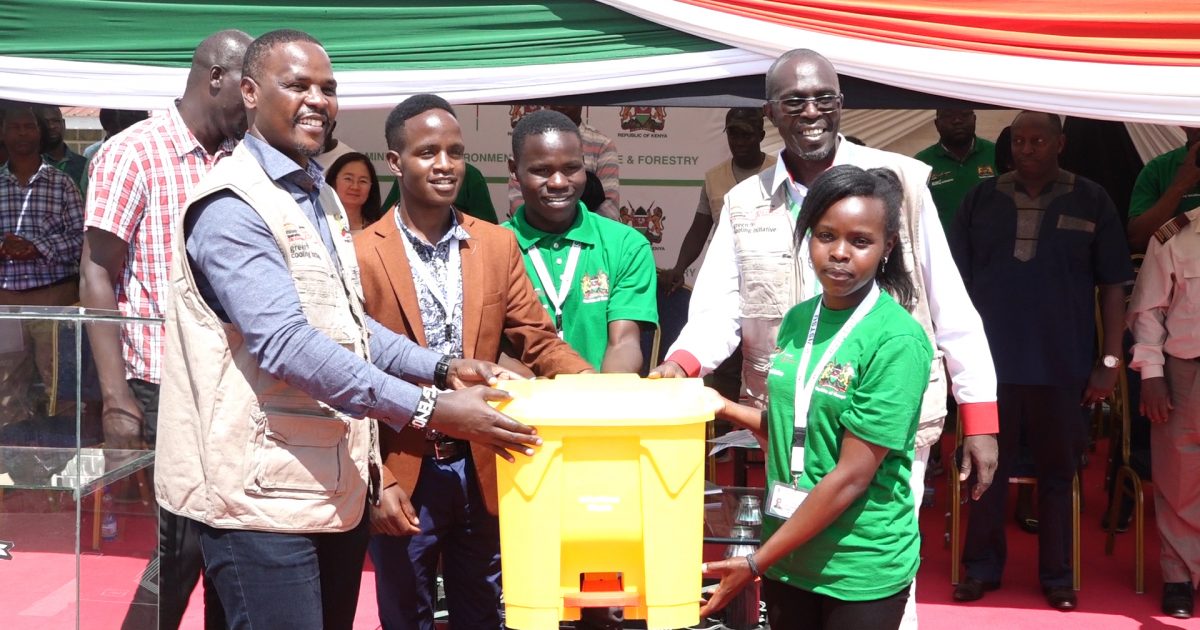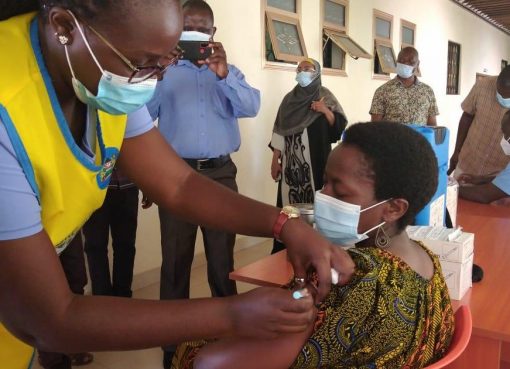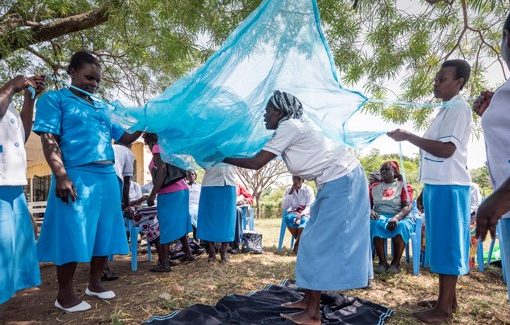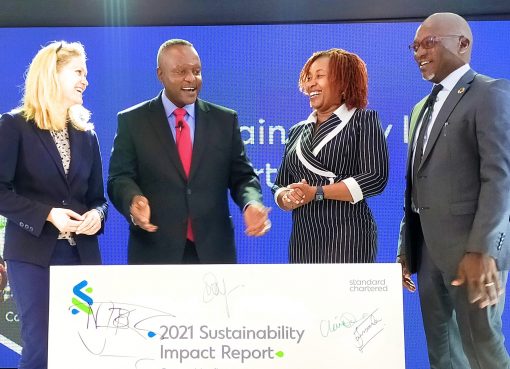Nakuru and Baringo Counties will receive funding from the European Union to mitigate damages caused by Rift Valley lakes whose waters rose to unprecedented levels.
Principal Secretary, Ministry of Environment, Climate Change and Forestry Engineer Festus Ng’eno announced that the funds that will be channeled through County Governments will initially be spent on short and medium interventions and later on long term interventions.
According to a detailed report compiled by a special team put together by the government to look into the effects of 17 lakes, the state requires Sh17.9 billion to mitigate the damages caused by the water bodies.
While announcing that Baringo will receive funding in the first phase which is expected to kick off by December, Engineer Ng’eno stated that loss and damage are the key components that the African delegation, Kenya included, will negotiate at the COP28 in the United Arab Emirates.
Though being a continent that least contributes to the impacts of climate change, the Principal Secretary observed that Africa instead has suffered the most from the impacts.
Speaking at the Rift Valley Institute of Science and Technology (RVIST) during celebrations to mark the international 2023 World Ozone Day, also known as the International Day for the Preservation of the Ozone Layer, Engineer Ng’eno observed that addressing the climate crisis entails mitigation, adaptation, and addressing loss and damage.
In the wake of their swelling, the waters from the lakes destroyed social amenities including learning institutions, health facilities, markets, fish landing and processing facilities, once-thriving hotels, curio shops, resorts and lodges, electricity lines, water supply and sanitation units as well as road networks in several areas.
For the short-term interventions, the government urgently requires Sh2.9 billion to resettle displaced families, and to put in place measures to stop further loss of lives and damage to property.
The document that was prepared with the help of the United Nations Development Programme (UNDP) indicates that families occupying land in various parts of the country where the lakes are located were still at the highest risk.
The findings of the task force revealed that some of the lakes recorded as high as 187 per cent rise in water levels and covered some 110,000 hectares of land.
The Principal Secretary said that because of inaction by major polluters to mitigate their emissions decades ago, vulnerable countries ended up needing adaptation to help them adapt to climate change.
“But because adaptation finance has proved so inadequate many poor countries remain vulnerable to climate impacts they have not caused and climate change is robbing them of their lives and livelihoods,” he added.
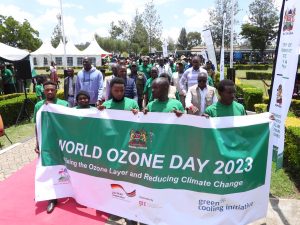
According to the Principal Secretary, lobbying for the financing of loss and damage by developing countries is a step in the right direction given that there are many victims who require climate justice.
“The issue of loss and damage is a valid case. If the government had money from such funding, it would have been made easier. Negotiating for finance on loss and damage is a good step by developing nations who are worst affected,” Engineer Ng’eno explained.
He hailed the United Nations (UN) and Bilateral Agencies for their support in implementing the Montreal Protocol requirements in Kenya.
The Principal Secretary added, “The effective implementation of the Montreal Protocol requirements has ensured that Kenya is not only compliant with the Protocol but also leverages on partners support to enhance its climate action,”
He went on, “The Montreal Protocol, and its Kigali Amendment have raised awareness of the need to develop sustainable and efficient solutions in the refrigeration and air conditioning sector to meet future cooling demands including cold chain initiatives for food preservation. To this end, Kenya has developed and rolled out a National Cooling Action Plan (NCAP) whose objective is to enhance access to sustainable cooling for all Kenyans,”
He affirmed that the Government will spare no effort in ensuring that the requirements of the Montreal Protocol on Substances that Deplete the Ozone Layer are fully implemented in Kenya.
This year’s theme is “Montreal Protocol: Fixing the Ozone Layer and Reducing Climate Change”.
The main purpose of commemorating World Ozone Day is to raise awareness on the need to preserve the ozone layer as a climate change mitigation measure by encouraging people to take actions that are both ozone and climate friendly.
Engineer Ng’eno stated that Kenya has phased out most of the Ozone Depleting Substances (ODS), which include; chlorofluorocarbons (CFCs), halons (firefighting chemicals), methyl bromide in soil fumigation, among others.
“In phasing out HCFCs in the refrigeration and air-conditioning (RAC) sector, Kenya has adopted ODS alternatives such as hydrofluorocarbons (HFCs) and low global warming potential (GWP) refrigerants. However, HFCs are global warmers and many low global warming potential refrigerants have either flammable or toxic properties or operate at high pressure. HFCs are ozone friendly but have negative impacts on climate and are now controlled under the Kigali Amendment to the Montreal Protocol,” indicated the Principal Secretary.
Representative from GIZ Proklima, Juliana Ruto said the Green Cooling Initiative III (GCI III) project, funded by the German Federal Ministry for the Environment, Nature Conservation and Nuclear Safety was being implemented in Kenya.
Ruto added that had GIZ procured RAC tools and equipment have been distributed to some of the RAC training institutions.
“The Ministry of Environment, Climate Change and Forestry through the National Ozone Unit (NOU) in collaboration with GIZ Proklima, Customs Department of the Kenya Revenue Authority (KRA), Training Institutions with RAC courses and Private sector has trained over 200 customs officers and more than 1,000 Refrigeration and Air-Conditioning Service Technicians, on control measures in ODS imports/exports and good practices during repair and maintenance of refrigeration and air-conditioning (RAC) equipment respectively,” she pointed out.
Ms Ruto indicated that the RAC technicians have been trained on safe use of hydrocarbon refrigerants as alternatives to HCFCs and HFCs.
By Anne Mwale


